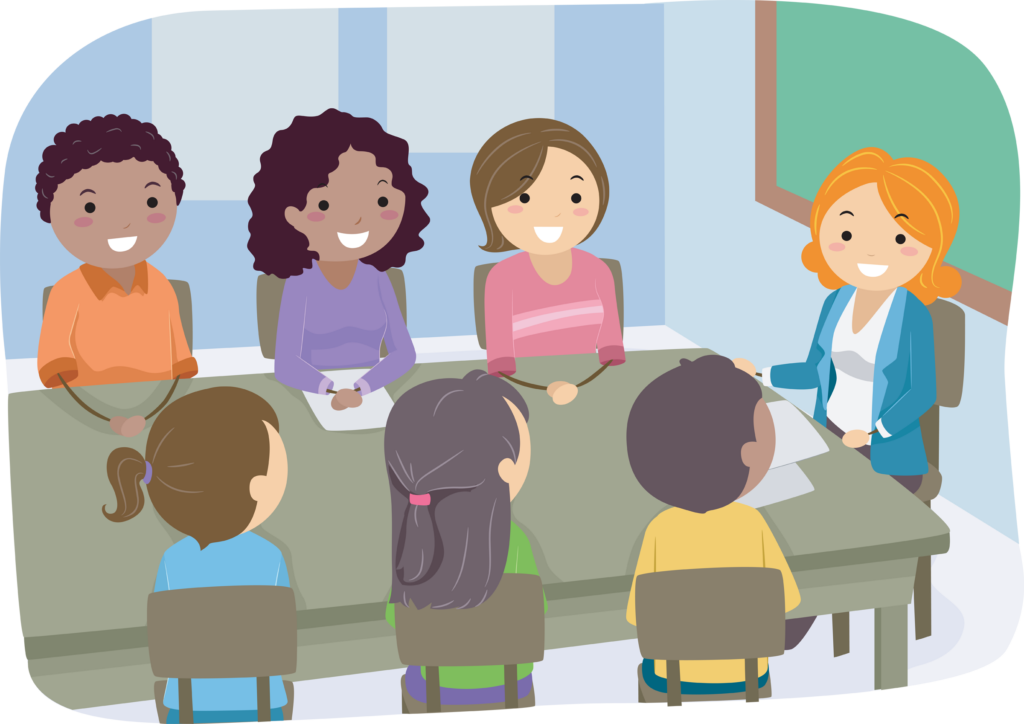
Education plays a vital role in shaping the future of our high school students, equipping them with the skills and knowledge needed for their journey beyond graduation. Whether they aspire to attend college, trade school, or enter the workforce directly, thorough preparation is key. In this article, we will explore valuable tips for teachers, parents, and students themselves, to ensure a smooth transition and set the stage for success in their chosen paths.
Best Practices to Support Students as they Transition Out of High School
Educators Should Create a Supportive Classroom Environment

- Foster Open Communication: Teachers should establish an atmosphere of open communication within the classroom, where students feel comfortable asking questions and seeking guidance. Encouraging discussions, debates, and collaborative projects cultivates critical thinking skills, while promoting an inclusive and supportive environment.
- Personalize Learning: Recognizing that each student has unique strengths and learning styles, teachers should strive to tailor their instruction accordingly. Offering diverse teaching methods, incorporating hands-on activities, and providing extra support for struggling students are effective ways to accommodate individual needs and maximize learning outcomes.
- Foster Career Exploration: Introduce students to various career options early on to broaden their horizons. Organize career fairs, invite guest speakers from different professions, and incorporate real-world applications into lesson plans. This exposure helps students envision their future paths and make informed decisions about their post-high school plans.
- Help Students Develop Study Skills: Guide students in developing effective study skills, such as time management, note-taking, and organization. Teach them strategies for prioritizing tasks, breaking down assignments, and managing their workload. These skills are essential for success in higher education or the professional world.
- Encourage Collaboration and Teamwork: Promote collaborative learning by assigning group projects and activities that require teamwork. This helps students develop interpersonal skills, effective communication, and the ability to work well with others. These skills are valuable not only in academic settings but also in future careers.
- Provide Personalized Support: Pay attention to each student’s needs and provide individualized support when necessary. Offer extra help sessions, one-on-one discussions, or additional resources for students who may require extra assistance. This personalized approach shows students that their growth and success are a priority.
Teachers and Parents Should Collaborate

- Maintain Open Lines of Communication: Regularly communicate with parents to keep them informed about their child’s progress. Share updates on academic performance, highlight areas of improvement, and discuss any concerns or challenges. This collaboration ensures that students receive consistent support from both home and school.
- Encourage Parental Involvement: Invite parents to actively participate in their child’s educational journey. Organize parent-teacher meetings, workshops, or seminars on college and career readiness. Encourage parents to volunteer for school events or engage in discussions about their child’s goals and aspirations. This involvement strengthens the support system and reinforces the importance of education.
- Foster a Supportive Home Environment: Encourage parents to create a conducive study environment at home. Help them establish a designated study area, set consistent schedules for homework, and provide necessary resources. Engage in conversations about their child’s interests, aspirations, and plans for the future. This support at home plays a vital role in shaping a student’s academic and career development.
- Promote Goal Setting: Guide parents and students in setting realistic short-term and long-term goals. Encourage them to discuss aspirations, break down goals into actionable steps, and regularly review progress. This collaborative approach keeps everyone aligned and motivated towards achieving those goals.
- Share Information on College and Career Resources: Provide parents with information about college applications, trade school programs, or career pathways. Share resources on scholarships, financial aid options, and internships. Collaborating with parents in navigating these resources empowers students to make well-informed decisions about their future.
- Celebrate Milestones Together: Recognize and celebrate important milestones with parents, such as college acceptances, trade school admissions, or job placements. By sharing these successes, it reinforces the collective effort and motivates students to continue striving for their goals.
Empower Students for Future Success

- Cultivate Self-Awareness: Encourage students to reflect on their strengths, interests, and values. Help them identify their passions and align them with potential career paths or areas of study. This self-awareness guides students towards making informed decisions about their future.
- Develop Critical Skills: Beyond academics, emphasize the importance of developing essential skills like time management, problem-solving, and effective communication. Encourage students to engage in extracurricular activities, clubs, or community service that align with their interests. These experiences nurture well-rounded individuals ready to face the challenges of college, trade school, or the workforce.
- Promote Research and Planning: Guide students in researching colleges, trade schools, or career options that align with their aspirations. Assist them in understanding application processes, deadlines, and requirements. Encourage exploration of apprenticeships, internships, or part-time jobs related to their desired fields. Research and planning equip students with the knowledge necessary for making informed decisions about their future paths.
- Encourage Networking and Mentoring: Urge students to connect with professionals in their desired fields through networking events, informational interviews, or mentorship programs. These interactions provide valuable insights, advice, and potential opportunities. Networking and mentorship can open doors to internships, job-shadowing experiences, or valuable connections for the future.
- Promote Financial Literacy: Teach students about financial literacy, including budgeting, saving, and understanding student loans. Help them navigate the financial aspects of college, trade school, or entering the workforce. Equipping students with financial knowledge empowers them to make sound decisions and manage their finances responsibly.
- Foster a Growth Mindset: Instill a growth mindset in students, emphasizing that intelligence and abilities can be developed through effort and perseverance. Encourage them to embrace challenges, learn from failures, and persist in the face of obstacles. A growth mindset empowers students to overcome setbacks and adapt to the evolving demands of their chosen paths.
By creating an engaging classroom environment, fostering collaboration between teachers and parents, and empowering students with essential skills and knowledge, we can effectively prepare high school students for their future endeavors. With a supportive network and personalized guidance, students can confidently navigate their paths towards college, trade school, or the workforce, equipped with the tools for success and personal growth. Together, we can nurture a generation of individuals ready to make a positive impact in their chosen fields.




